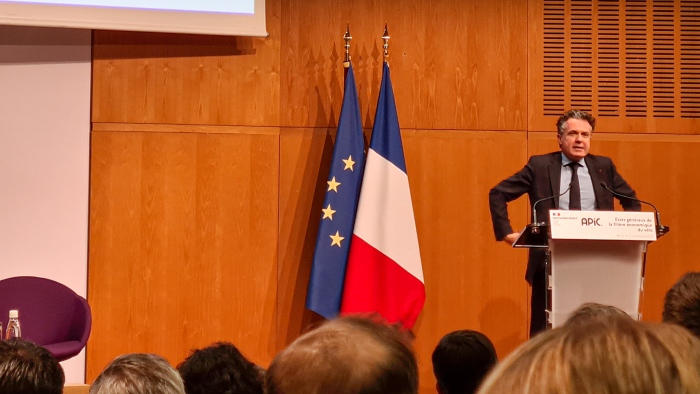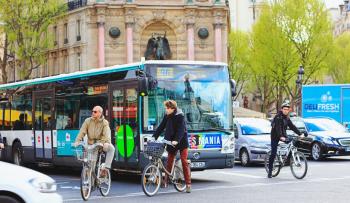
Boosting the cycling economy: France takes ambitious step in becoming “another cycling nation”
French government supports White Paper for boosting the development of the national cycling economy. Key areas of focus include manufacturing, sales and repairs, cyclelogistics and cycle tourism.
After having launched an ambitious second edition of its national cycling strategy in September, with planned investments of €250 million for 2023 alone, the French government has now also supported a coalition of stakeholders in putting together a White Paper on the integrated development of the French cycling economy. In what could be an example for the European level, the results of this process were presented at an event in Paris on 15 November, with no less than four government ministers from different departments being present in person to show their support for boosting cycling and all the socio-economic benefits and business opportunities linked to it.
The White Paper had been drafted based on a participatory process involving surveys and a workshop, in which ECF took part together with our partners at Cycling Industries Europe. Its goal is to present an integrated approach to growing cycling usage and all business sectors linked to the cycling economy, such as manufacturing, sales and repairs, cyclelogistics and cycle tourism in order to make France “another cycling nation”. A broad coalition of governmental, industrial and civil society stakeholders has carried this process, including French ECF Member FUB, the French National EuroVelo Coordination Centre, Vélo & Territoires and French Cities & Regions for Cyclists member Club des villes et territoires cyclables et marchables.

Monsieur Christophe Béchu, Minister for Ecological Transition and Territorial Cohesion speaks in Paris (Source: Holger Haubold)
Concretely, the White Paper contains nine engagements of the coalition to boost cycling and the cycling economy:
- Creating a governance structure to federate all relevant actors and to lead common projects;
- Creating a data observatory to measure the impact of its actions and to guide policies and projects;
- Reshoring and upscaling of innovative, sustainable and competitive bicycle manufacturing in France, with the goal of increasing domestic production to two million bicycles per year by 2030;
- Promoting innovation in the sector to meet customer and user needs and to be more competitive;
- Anticipating the need for skills and training, developing employment and strengthening the attractiveness of cycling-related professions;
- Promoting and strengthening sustainable, socially responsible and locally embedded production and use of bicycles, notably by offering the possibility to every citizen to get their bicycle repaired less than 15 minutes away from home by 2030;
- Making France the first destination for cycle tourism worldwide by 2030;
- Stimulating the accelerated implementation of a comprehensive cycling eco-system with a high level of service that is suitable for all, notably by increasing the availability of safe infrastructure to 100,000 km and combatting bicycle theft by providing 20 million safe bicycle parking spaces;
- Promoting the actors of the cycling economy and its environmental, social and economic benefits in France and in Europe.
The French government was very well represented at the presentation of the White Paper, with four ministers participating in person and one through a video message. Transport minister Clément Beaune stated that “France is writing a new page in the history of cycling, combining innovation and sustainable design to create a strong sector of the economy”. Christophe Béchu, Minister for Ecological Transition and Territorial Cohesion pointed out that “cycling investments pay off – after launching our first national cycling strategy in 2018, France has seen a boom both in cycling usage and bike sales. We will need even more investments to achieve our transport decarbonisation and ecological transition goals.”
From ECF’s perspective, France’s integrated approach towards growing cycling usage and all economic sectors linked to it could serve as a blueprint for other countries, but also for the European level. An integrated European cycling strategy would help to unleash the potential of cycling for growth and sustainability in the whole European Union.
Regions:
Contact the author
Recent news!
Upcoming events
Contact Us
Avenue des Arts, 7-8
Postal address: Rue de la Charité, 22
1210 Brussels, Belgium









